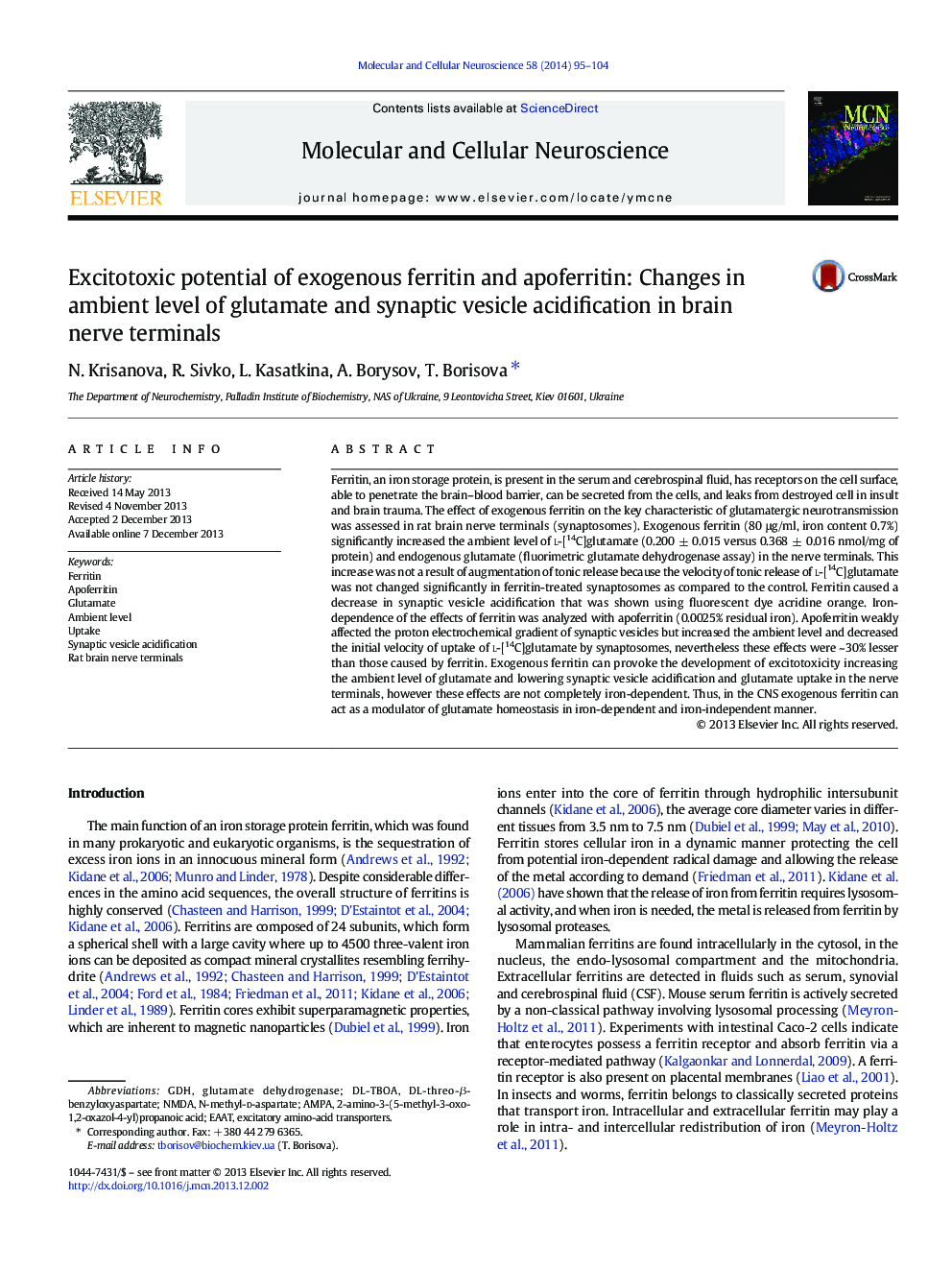| Article ID | Journal | Published Year | Pages | File Type |
|---|---|---|---|---|
| 2198496 | Molecular and Cellular Neuroscience | 2014 | 10 Pages |
Ferritin, an iron storage protein, is present in the serum and cerebrospinal fluid, has receptors on the cell surface, able to penetrate the brain–blood barrier, can be secreted from the cells, and leaks from destroyed cell in insult and brain trauma. The effect of exogenous ferritin on the key characteristic of glutamatergic neurotransmission was assessed in rat brain nerve terminals (synaptosomes). Exogenous ferritin (80 μg/ml, iron content 0.7%) significantly increased the ambient level of l-[14C]glutamate (0.200 ± 0.015 versus 0.368 ± 0.016 nmol/mg of protein) and endogenous glutamate (fluorimetric glutamate dehydrogenase assay) in the nerve terminals. This increase was not a result of augmentation of tonic release because the velocity of tonic release of l-[14C]glutamate was not changed significantly in ferritin-treated synaptosomes as compared to the control. Ferritin caused a decrease in synaptic vesicle acidification that was shown using fluorescent dye acridine orange. Iron-dependence of the effects of ferritin was analyzed with apoferritin (0.0025% residual iron). Apoferritin weakly affected the proton electrochemical gradient of synaptic vesicles but increased the ambient level and decreased the initial velocity of uptake of l-[14C]glutamate by synaptosomes, nevertheless these effects were ~ 30% lesser than those caused by ferritin. Exogenous ferritin can provoke the development of excitotoxicity increasing the ambient level of glutamate and lowering synaptic vesicle acidification and glutamate uptake in the nerve terminals, however these effects are not completely iron-dependent. Thus, in the CNS exogenous ferritin can act as a modulator of glutamate homeostasis in iron-dependent and iron-independent manner.
